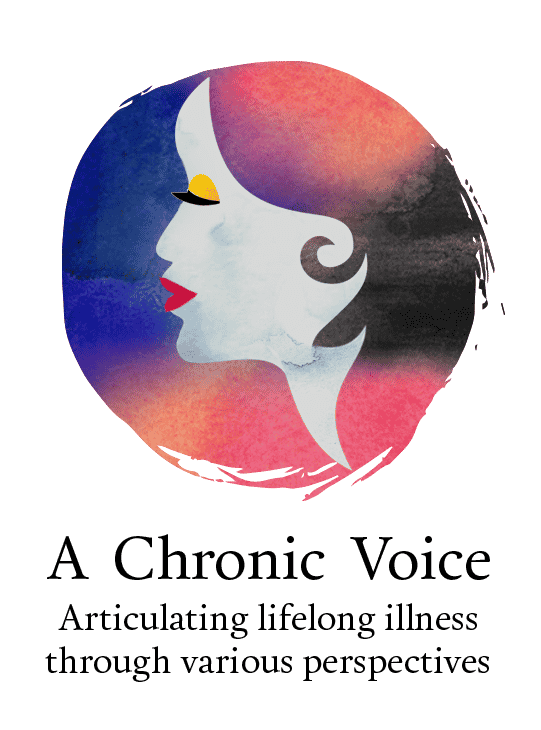It is no surprise that seeing 10 different doctors on a regular basis is an expensive affair. My medical bills add up to a thousand dollars per month on average. This excludes the occasional surgery or experimental treatment. Let’s do a quick breakdown, before going on to the most important point.
Table of Contents
Doctor Consultation Fees
This is the least of our worries, as the government covers most of the bill unless you see a private doctor. The problem with public healthcare is, as always, the long waiting list. Sometimes you have no choice but to visit a private doctor, as you do not have the luxury of time to gamble with your health. Unfortunately, you can’t go back to public rates once you go private.
Medical Tests
Most people get their blood checked on an annual basis to ensure that all is well. For people with chronic illnesses, we need to get this done on a monthly, weekly or even daily basis. Some of the extra tests ordered are highly specific as well, which tend to cost more. We also undergo scans such as MRIs or echocardiograms on a frequent basis, and these cost a few hundred dollars per pop.
Medications
This is actually the biggest liability for me every month, and cost more than all the food I consume. For one, the medications we need as a chronic illness person are non-standard, which tend to to be high cost. I was on the maximum dose of cyclosporine at one point (which didn’t work by the way), and that drug alone costed a thousand dollars per month. I’m back on it now.
According to the pharmacist who dispensed my medication, the government does not subsidise these non-standard drugs as they are too expensive. They do however, subsidise medications that cost me a grand total of $4 per month.
Insurance and Medishield Life Plan
I am glad that my mother purchased insurance for me before the discovery of my many illnesses. However, my plan only helps with covering some of the inpatient costs. My total outpatient and medication allowance per year is $500. This isn’t even enough to cover a single month.
The government also rolled out a Medishield Life plan this year. This aims to relieve some of the financial burdens of a chronic illness patient, by allowing them to use more of their own money in their Medisave. This covers my outpatient costs for epilepsy but not my Lupus, Sjögren’s or Antiphospholipid Syndrome, which is strange as these are as chronic a disease as you can get.
I contacted the Medishield Life department to obtain more information about this issue. After a month of generic responses, they referred me to the Ministry of Health, who also took a while to get back to me. It seems that Medishield life is more for inpatient stays when it concerns illnesses such as Lupus. As for outpatient matters, the typical response here is, ‘it is what it is’.
Here’s another catch – I do not have much savings in my Medisave at all, due to my inability to hold down a full time job which contributes to it. Which leads me to my most important point…
Inability to Work is the Biggest Financial Burden
More often than not, it isn’t because we don’t have the skills or willingness to earn the money needed to cover our medical bills. Given a functioning body, we could work hard enough to handle the financial burden. But it is more of the inability to even get up to go to work. All the chances that we do not have, to work as hard as we would like. We are often bedridden for weeks, months or even years. Even if we are looking and feeling fine, stress is often the biggest trigger of flare ups. The inevitable stress that comes with work, thus drives an endless cycle of pain and yet more bills to pay.
It goes like this: “Wow I’m finally feeling better these days, let’s start working again!” After a few months, my body starts to break down all over again, and my medications go up. Inflammation levels rise and trigger angry immune responses in random body parts. I am forced to take a break from work again, while I recover and scurry off for yet more tests and appointments. All the money I have earned during this period goes to the hospital.
How I’ve Learned to Cope With it
No man is an island, and a chronic illness person isn’t one for sure. I have learned to accept financial and physical aid from family, friends or even strangers. Sometimes you just don’t have a choice, especially when faced with the very real possibility of death.
Some people have said to me that they will never accept money from others. Some are aggressive and even equate it to begging. These comments are especially hurtful when coming from the mouth of family members. Having given it some thought, I think it is alright for anyone – sick or healthy – to receive help in any form if it is a true need.
Even if we can handle life all alone, these thoughtful acts are what make it meaningful and beautiful. It doesn’t even have to be a material generosity; a simple acknowledgement of understanding goes a long way. There are also many ways we can repay these acts of kindness. And at the end of the day health always trumps wealth; money is inconsequential when pain has broken your body, or when faced with impending death.
The groundwork of all happiness is health. – Leigh Hunt
The foundation of success in life is good health: that is the substratum fortune; it is also the basis of happiness. A person cannot accumulate a fortune very well when he is sick. – P. T. Barnum
If you liked this article, sign up for our mailing list here so you don’t miss out on our latest posts!




The financial impact of chronic illness is huge. Like you, I’m someone who had always prided myself on being independent and never asking for help. Accepting financial support from family is still something I’m not completely comfortable with as I often feel like a burden but like you said, our health is our greatest investment.
Thanks for sharing your thoughts too, Lucy. I think many people with chronic illnesses and disabilities do worry about the financial impact, which can make or break so many things. It’s such a huge stressor. The problem is many of us DO want to work and be able to look after ourselves that way, but often just can’t. I know my maximum is 3 months of working full time, before my body collapses.
I hear you on the costs of being chronically ill. Like you, my primary med is $1,000 a month and the cost is more expensive than my rent and certainly more than our monthly grocery bills (even with a giant 6’9 husband). It’s more than what we spend on child care each month as well. It’s a real struggle to get through each month and now that I’m getting closer to 50, I can’t help but think of my savings and how it’s nowhere near enough. It’s a constant worry. If I had any other illness except a complex chronic illness, I’d have coverage. Crazy, isn’t it?
It’s just so HARD and STRESSFUL for you and your family. I know our systems aren’t the same, but it frustrates me so much how those living with chronic illness who are having to focus everything on living well, have so much STRESS trying to be able to afford it. I just feel like there’s got to be a better way. I have to believe that the more awareness we bring to the situation, that changes will come. Thank you for being one of those that is working on developing awareness, Sheryl.
I am so fortunate to be under the NHS, but even that isn’t perfect and I have to see a couple of doctors on a private (pay-for) basis which is extremely expensive. But not being able to work full-time means all the other expenses – travel, supplements, prescriptions etc etc mount up and take a huge chunk of my monthly income.
The costs of prescription medications always angers me. I work in health insurance, specifically in drug products and pricing, so I deal with manufacturers on a daily basis. Every time a new drug is submitted to us or a price goes up I tend to yell at my monitors. It’s ridiculous how much specialty medications can be when the people that need them probably can’t afford them without some kind of assistance. We manage the government plans too and that’s just even more aggravating to see. Even here in Canada, patients can be completely screwed over.
It sounds similar to being on disability and Medicare in the USA. do people in Singapore think that all costs are paid if you’re getting assistance, like they do in America? I always thought Medicare was free. I have to pay for it each month, and it doesn’t cover many things, including outpatient prescriptions. I had to add another insurance plan to it, to pay for my weekly immunoglobulin infusions, and a third prescription drug plan as well.
Hi Kathy,
We don’t have disability at all here, or Medicare. Medisave is a forced savings account that every citizen needs to have (you can’t withdraw the money; the government tells you how much you can take out per year, which is $500 for me). We also don’t have insurance unless it’s your own personal one, so you better get one before you fall ill ;p My mum bought insurance when we were younger so that was a lucky thing. Even so, insurance doesn’t do much for outpatient and chronic illness bills.
Everything here is mostly on your own. The government subsidises some medications, but it’s split to different classes. Most of my drugs are not subsidised much 🙂 I actually have a post in the works about this…it’s sitting there for editing cos it’s such a boring but necessary topic haha. Thanks for taking the time to ask xx
I can totally relate to you about medical costs in Singapore and the 1001 terms and conditions what are covered and what are not in our insurance blah blah blah. Health is gold, keep up the spirit!
Yes! Good to know someone else understands what our system is like ? Thanks for reading!